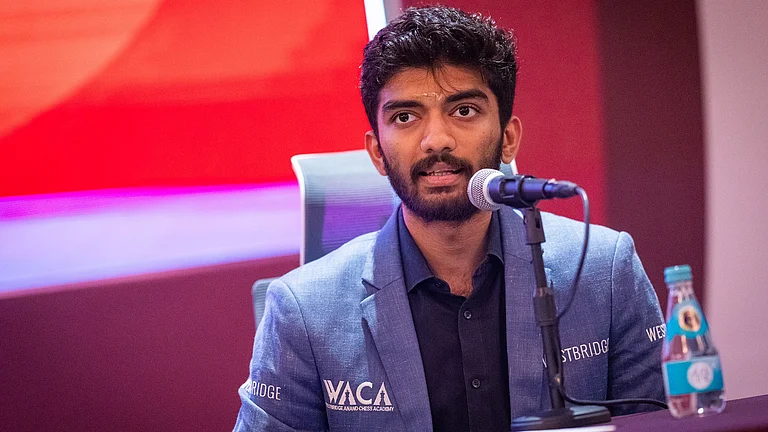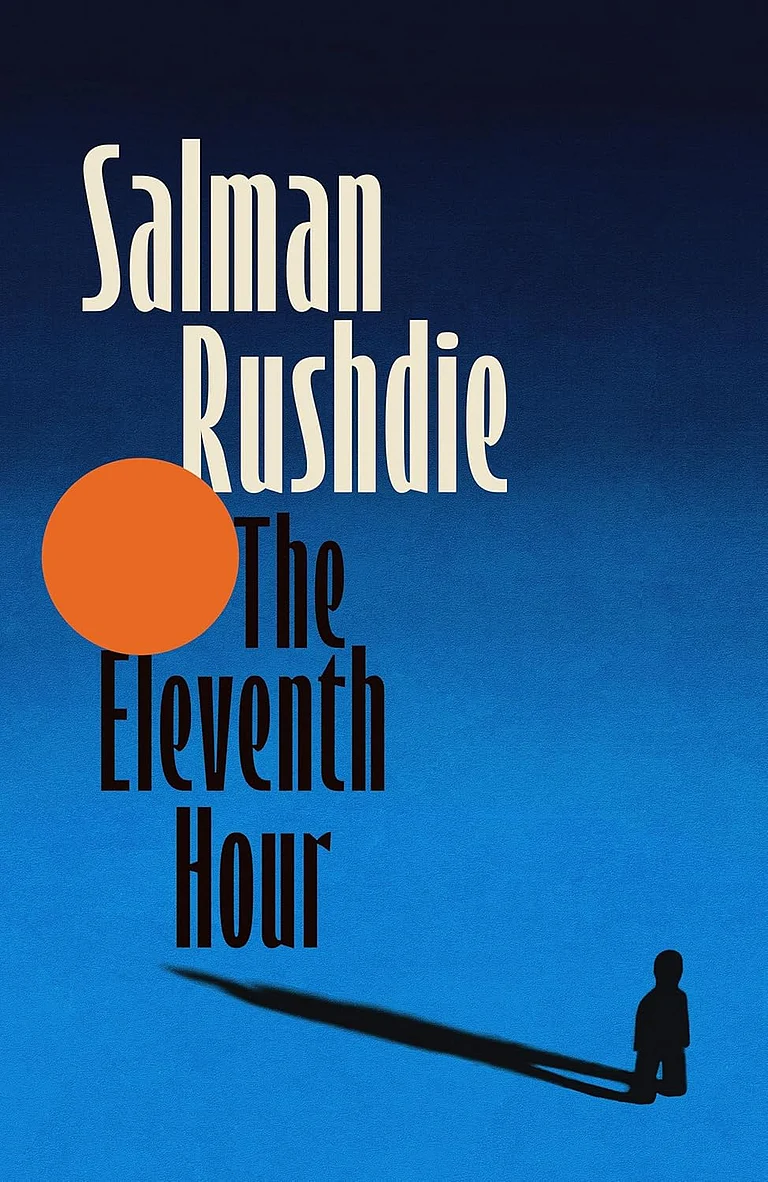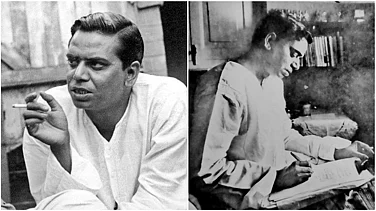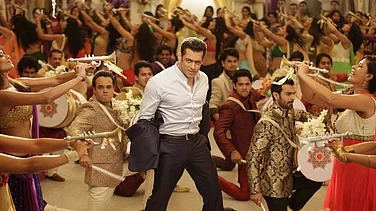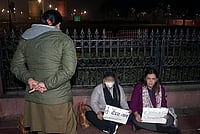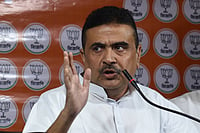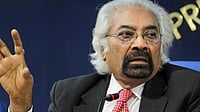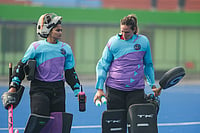A group of wrestlers are exercising on the ghats. Their bodies ripple with mud and life. Shakuntala and Mansa Ram walk past them in silence. Suddenly a young man weaves through the crowd: "Gandhiji Benares hote hue Allahabad jaa rahe hain."
This, according to the Kashi Sanskriti Raksha Sangharsh Samiti or the ksrss, is historically incorrect as Gandhi never came to Benares at this time. And this is the least of it.
The Sangh has circulated a set of papers titled Water Se Related Tathya which provide pages 52-177 of the script. Another controversial line reads - Shakuntala: Agar hamari antaratma hamare dharm ko jhutlana chahe, tab kya karen?
Director Deepa Mehta says the Sangh is leaking a distorted version to the public. Her scriptwriter Anurag Kashyap maintains that Sangh activists only have a preliminary draft to the script in English and have translated it themselves to justify their January 30 vandalism. He says parts of the script have been twisted and falsified, and words added to strengthen their case.
Sangh activists, however, insist this is the script that was about to be filmed. And if the shooting of Water is possibly shifted to Madhya Pradesh, as MP chief minister Digvijay Singh recently announced, the ksrss says itll take its agitation to the banks of the Narmada. "Is film ko Hindustan ke kisi ilake mein ham katayi nahin hone denge," declares Veera Pande, former bjp mlc from Varanasi.
Set in the 1930s, Water explores the plight of Benares widows through a widows home, whose villainous head widow supplies young inmates to seths and zamindars. Shabana Azmi plays Shakuntala, the introspective observer who isnt as evil as the rest and who encourages Janaki, the beautiful young widow Nandita Das plays, to ultimately leave the widows home. But the liberation proves short-lived, as Janaki commits suicide after she discovers that the man shes been supplied to for years is the father of the man whos in love with her, namely Narayan, played by Akshaye Khanna. Lending poignant moments to the film is the eight-year-old widow Chuhiya, played by Urvi Gokani, whos offered for gang rape by the brothel-keeper and is returned bleeding and abused. Towards the films end, Shakuntala hands the child over to the followers of the Gandhian movement which is gaining strength at this time. In the sequence where Chuhiya is being forced to submit, the ksrss pamphlet quotes the script thus:
Chuhiya (the child widow): Yeh hamara ghar nahin hai.
Hariharan: (forcing her to comply) Yeh Janaki ke dost ka ghar hai.
Chuhiya: Mujhe nahin khelna hai.
Hariharan: Halwa poori nahin chahiye?
Kashyap says these lines have been taken out of context. However, a prominent womens activist and social critic whos seen the script calls it beimaan. She says Water is nothing but sex sensationalism and a crassly commercial attempt to encash the miserable plight of the widows. The script, she says, relies upon the shastras as repositories of all thats evil. "The exploitation of women in the shastras is a recurrent song in the film." Yet, according to her, to portray the shastras as a single text is to simplify them for the Western audiences.
Among the other disputed sequences is the one where a character says: "Yahaan mahamari ki tarah phelta haija, bhrasht, beimaan purohit aur pandit, adhjale shav jo Ganga mein tairte rehte hain, yahi hai pavitra Ganga?" Kashyap says Mehta had offered to edit the line about the adhjale shav but the mahant of the Sankat Mochan temple, Veer Bhadra Mishra, offered that the line be retained. Another objectionable sequence has Narayans father saying: "Narayan, kya tumhe pata hai ki vidhwaon ke saath brahmin aur bhagwan sone ke liye adhikaar rakhte hain aur isse to unhein aashirwaad prapt hota hai."
Kashyap says this too has been completely distorted; the lines meant to convey that mortals can sleep with anyone they want but gods and Brahmins cant. In fact, after the above statement, Narayan assaults his father for the first time in his life, and leaves home. "Every negative statement in our script is countered by a positive one," says Kashyap. "But the demonstrators have provided only the negative statements to legitimise their own actions."
In another shot, the character Madhumati tells the child widow: "Tumhe ye samajhna chahiye ki vidhwa aur vaishya mein koi phark nahin hota hai." According to Nandita Das, one of the important aspects of the film is how the child widow asks innocent questions and in turn receives chilling answers. The questions and answers are a powerful critique, not an exploitation of the widows misery.
A point the womens activist strongly contends. The widows home, she says, is shown as a sex racket; Gandhis portrayed as a pop philosopher; the cantonment area where the colonial ruling class lives is falsely depicted as a zone of liberation, the British freedom givers. Water, says she, seems to be attacking a non-existent enemy in "the shastras". "The script makes the case that exploitation of women is religiously enjoined!"
The ksrss says Hindu families have traditionally sent widows to Benares to find peace near the Ganga. But Water casts aspersions on all widows as whores, as it shows a widows home as a brothel and its head as a brothel-keeper. Das counters this by saying only one widows shown as being forced into prostitution. Critics whove seen the script say sex has been given primary importance in widow exploitation when poverty, not sexual abuse, was the dominant cruelty. The situation wasnt as bleak as Water makes it out to be. For Water though, the situation does seem bleak.







